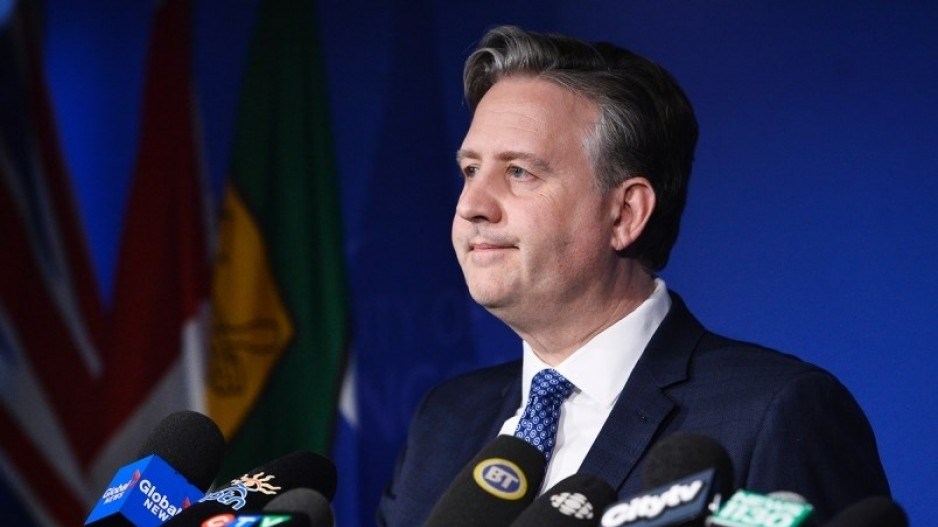“I don’t know what I could have done differently,” says Â鶹´«Ã½Ó³»Mayor Kennedy Stewart on .
Â鶹´«Ã½Ó³»City Councillors — past and — have long criticized Stewart for “doing nothing” on the city’s persistent challenges with homeless encampments.
After all, it’s easy to blame the mayor.
But the impending decampment of Strathcona Park at the end of April and the provincial government’s formalized commitment to prevent future tent cities in Â鶹´«Ã½Ó³»may change that narrative.
Pessimism is understandable.
The Oppenheimer Park homeless encampment lasted eighteen months until BC Housing relocated 261 homeless campers to indoor spaces in May 2020. Shortly thereafter, the Â鶹´«Ã½Ó³»Port Authority was granted an injunction to clear an encampment near CRAB Park. By June, Strathcona Park started to become Canada’s largest tent city.
Homelessness in Â鶹´«Ã½Ó³»is a culmination of policy decisions from federal, provincial, and municipal governments, compounded over decades.
As The Â鶹´«Ã½Ó³»Sun’s notes, many wealthy cities around the world have entrenched issues with homelessness, linked to structural inequality.
The COVID-19 pandemic exacerbated homelessness in Vancouver. Stewart estimates that 1000 to 1500 people were driven out of housing due to reduced shelter capacity and restrictions on guests in single-room occupancy hotels. Decades of underinvestment in social housing left Â鶹´«Ã½Ó³»underprepared for accelerated growth in the homeless population in 2020.
The challenge is structural. It requires a systemic approach, involving several levels of government.
To his own admission, Stewart’s biggest shortcoming on Strathcona Park may have been his ability to communicate the issues to the public.
“I didn’t really feel like people wanted to hear it at that point. They just wanted action.”
Contrary to his critics, however, Mayor Stewart did do something.
“I’ve, so far in my mandate, secured over half a billion dollars in housing investments from senior governments. That’s never happened.”
It’s a staggering financial representation of systemic political will that the Mayor has delivered to Vancouver.
Stewart is confident that the residents of the Strathcona Park encampment will be housed by the end of the month, as promised by BC Housing.
“We are securing the housing, we are getting the wraparound services in place, we’re making the agreements with the non-profit associations… We’re all walking in lockstep.”
After that deadline, the larger challenge is the prevention of future tent cities.
This week, the B.C. Government, City of Vancouver, and Â鶹´«Ã½Ó³»Park Board signed a memorandum of understanding (MOU) that “further solidifies that commitment” to end the Strathcona Park encampment and formalizes an agreement to prevent future homeless encampments.
The MOU clarifies the roles and responsibilities of the Province, City, and Park Board: The provincial government will fund temporary and permanent housing for the homeless; the municipal government will enforce its bylaws against around-the-clock camping.
If the MOU is successful in its mandate, Stewart can take credit for significant progress on tackling homelessness in Vancouver.
Stewart will have also delivered his promise on his terms, not the hasty court injunctions recommended by his opponents who would have cleared parks but either criminalized the homeless population or left them with nowhere suitable to sleep at night.
“These are people. They have constitutional rights. You can’t just round people up and put them in refugee camps or one of those Texas-border US camps. There was a lot of that kind of pressure coming which really turns my stomach.”
Surely, after all the criticism he faced, this type of major policy action — the end of tent cities in Â鶹´«Ã½Ó³»— will reward Stewart with re-election.
Of course, this all assumes that the partnership with senior levels of government is, indeed, successful.
If it isn’t, then the Mayor will still be right: It’s unclear what he could have done differently.
Mo Amir is the host of This is VANCOLOUR, a politics and culture podcast available on Apple Podcasts, Spotify, Google Podcasts, and online at .



